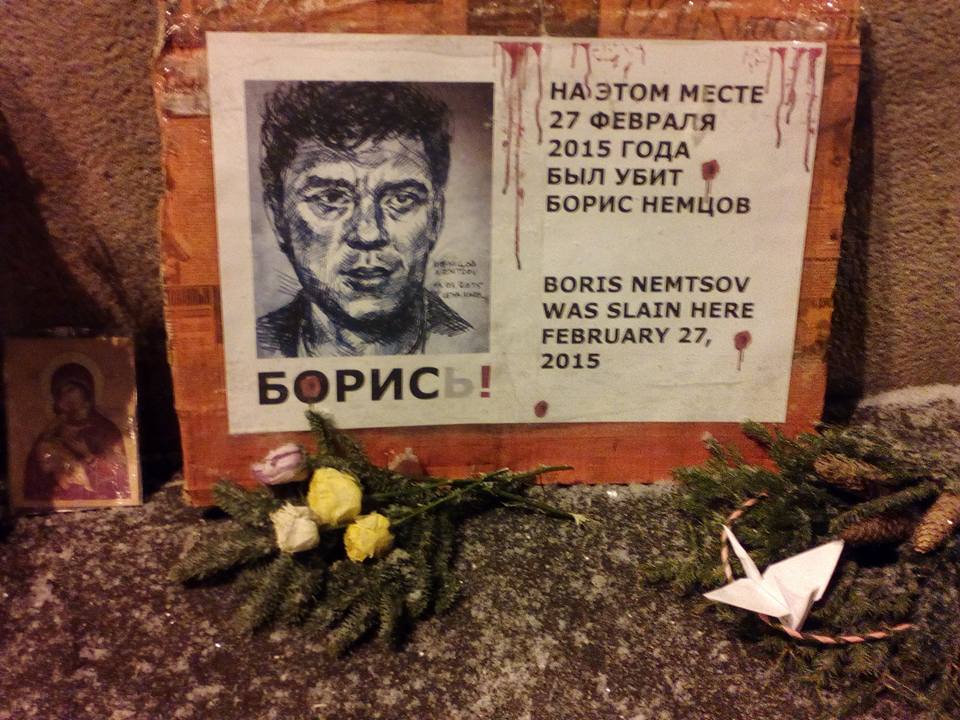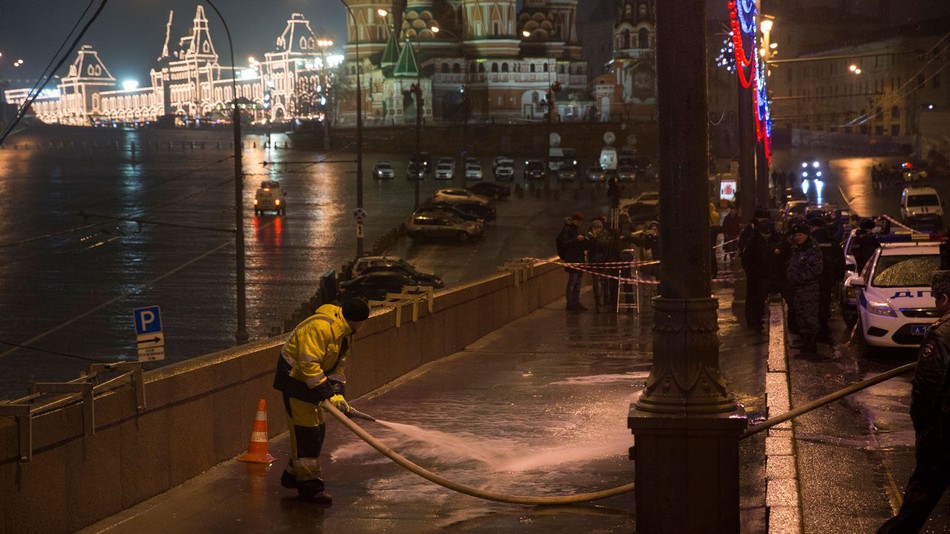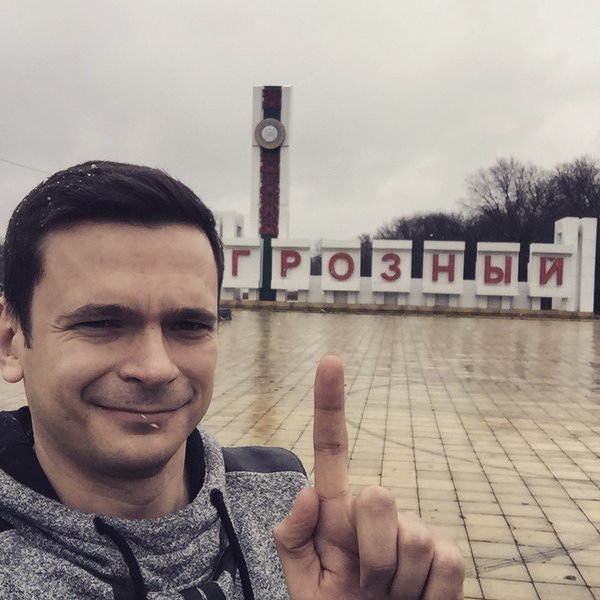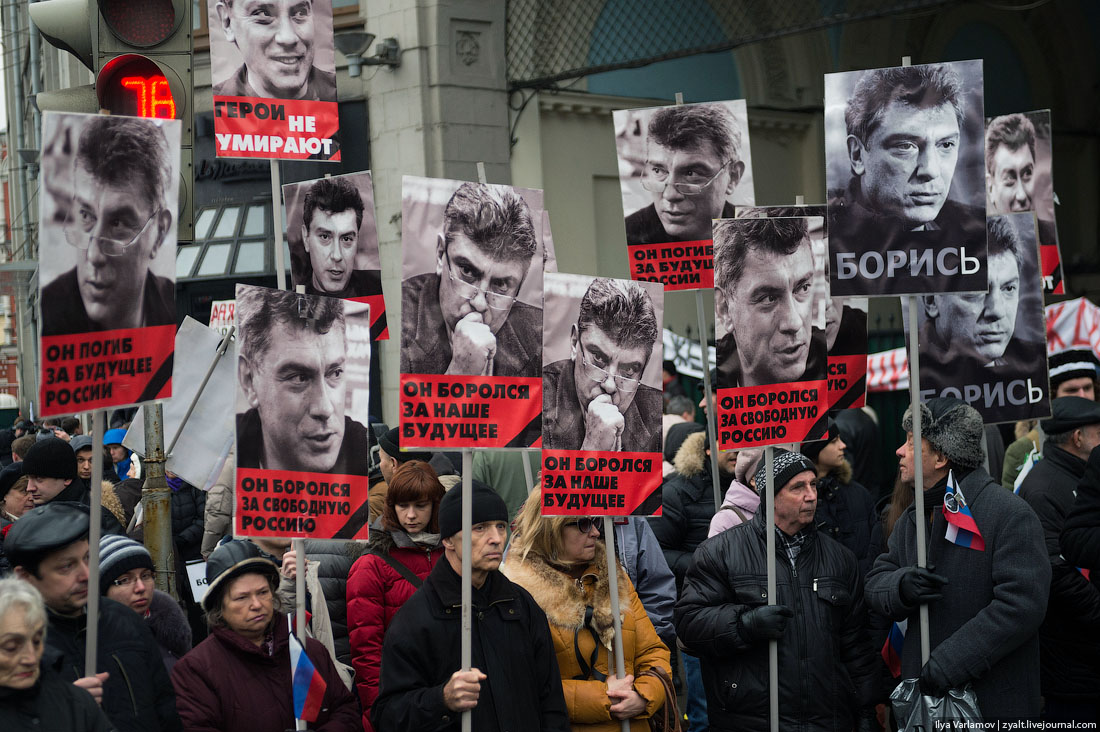The trial in the murder of Boris Nemtsov, one of Russia's leading opposition figures, is coming to a close. Leonid Martynyuk, friend and colleague of the slain opposition leader, who recently received political asylum in the United States, shared with Euromaidan Press his thoughts on the trial, the men who he believes actually ordered the murder, and what lies ahead for Russia's dissidents.
I have been very skeptical about this trial from the very beginning, because I am certain that the Russian government is behind the murder of Nemtsov. I believe that it is Vladimir Putin who ordered this murder. I do not know the details of what manner he gave this order: whether it was a direct order or simply a declaration of his wish, but I have no doubt that he was involved. The investigation simply stopped at the level of those who carried out the order, but the man who ordered the hit, according to the driver, had neither the means nor motive for committing this murder. And most importantly, he had no means of turning off the security cameras of the FSO [Federal Protective Service in charge of physical security of high-ranking state officials, including the President of Russia, as well as associated federal properties, such as the Kremlin and its vicinity where the murder was executed -- Ed.]. The murder site [on the Bolshoy Moskvoretsky Bridge] was a particularly convenient location for those controlling the security cameras and special services near the Kremlin, and, by the same token, extremely unsafe for those who do not control the cameras and the Kremlin's security services.
Leonid Martynyuk adds that Viktor Zolotov, the man who had the ability to turn off the surveillance cameras, would never have planned a murder without Putin's approval.
If we look at his biography, we see that Zolotov has been a faithful bodyguard since Putin's first days in power. Kadyrov is also indebted to the Russian president for everything that he has. In addition, it is important to understand that Russia is a mafia state, where there can only be one "pahan," one chief. People who commit such murders without the approval of the boss would have been punished. In this case, however, Putin punished neither Zolotov nor Kadyrov. On the contrary, he promoted Zolotov, making him head of the Russian Guard and giving him enormous powers. Similarly, Putin reappointed Kadyrov as president of Chechnya. These actions look more like gratitude than punishment.
Martynyuk also notes that unlike Ramzan Kadyrov or Zolotov, it is Putin who had a direct motive for eliminating Nemtsov, since the slain oppositionist was one of the few people in Russia who were not afraid to directly criticize the Russian leader.
In today's Russia you can criticize governors or expose local corruption, but you are forbidden to personally criticize Vladimir Putin, as well as the foreign policy of the country. This makes sense, because, for example, it is impossible to send an anti-aircraft missile system to the Donbas [in eastern Ukraine] without the order of the Supreme Commander-in-Chief. Boris Nemtsov was not afraid to expose the crimes of the Russian military in Ukraine, and in his reports he clearly wrote about Putin and Putin's closest friends. In addition, he was never involved in any corruption, so no criminal case could be brought against him. He remained involved in politics, and had considerable practical government experience. I think that the aggregate of all these factors has long irritated Putin.
The oppositionist recalls that back in February 2012, Nemtsov was warned
that the Kremlin planned to eliminate him.
It was in during the major protests, the demonstrations known as the "White Ribbon Movement" that brought nearly 150 thousand people to the streets of Moscow. Boris Nemtsov and Andrei Piontkovsky had just arrived in Oslo at the invitation of the local parliament. On February 28, a former Chechen politician and fighter for Chechnya's independence, Ahmed Zakayev, wanted to meet with them. Eventually, he met with Piontkovsky and informed him that at the end of 2011 Kadyrov was given the order to organize the murder of two opposition leaders: Garry Kasparov and Boris Nemtsov. In addition, Kadyrov promised to send 800 fighters to Moscow to shoot at protesters should the crowds decide to move on the Kremlin. We had known that Chechen soldiers were at the President-Hotel, but Nemtsov did not immediately believe the information about the upcoming attempt.
However, the next day, February 29, at a meeting with his close confidants, Putin stated directly that the opposition leaders were “themselves planning to sacrifice someone and then put the blame on the authorities" and that they were "looking for a so-called sacrificial lamb from among some well-known people."
It was then that Nemtsov and Piontkovsky took Zakayev's warning seriously. Piontkovsky wrote an article "Is Putin preparing a sacrificial murder?" in which he flatly suggests that "sacrificial martyrs" was nothing more than "political murders ordered at the highest levels of the Russian government." Perhaps, it was the fact that it was leaked to the media that forced the Kremlin to postpone its plan. In addition, the demonstrations began to wane, and Putin did not even have to accept Kadyrov's offer of 800 fighters.
Martynyuk states that Nemtsov admitted to him privately that should the authorities launch a criminal case against him, he was prepared to leave Russia, since a 10-year prison term at his age would surely be a death sentence. It would simply be impossible for him to survive a long term in a penal colony and return a healthy man. In the spring of 2014, Nemtsov lived in Israel for a month and a half, but then returned to Russia.
Another piece of evidence that the murder of Nemtsov could not have been organized without the participation of the special services is the fact that the opposition leader was under constant FSB surveillance, states Leonid Martynyuk.
Nemtsov always knew that if he was talking on the phone, they were listening. At the end of 2011, some of his conversations were even posted online. He filed a statement complaining about this to the police, but nobody was ever punished. Everyone knows that in Russia, a country where everything is controlled by special services, it is impossible to do such things with impunity unless it was sanctioned by the FSB. Both Nemtsov and his associates told me that someone was always following him. When he came to visit us in Krasnodar, I myself saw an entire crowd of FSB guys as well as "Nashists" [pro-Kremlin hired thugs – Ed.] following us.
Martynyuk also casts doubt on some of those identified as the perpetrators of the murder, in particular Zaur Dadayev, who according to the official investigation should be left-handed, but in some cases appears to be right-handed. As for Anzor Gubashev
and Beslan Shavanov, Martynyuk says that based on the investigative materials, he is inclined to believe they did in fact participate in scoping out the victim.
On the subject of recent films about the slain politician, Nemtsov's colleague opines that it is simply impossible to create a good film about Boris in modern Russia today. For example, the sensational film "A Man Too Free" details a good deal about the 1990s, but does not touch the investigation into Nemtsov's murder, just as it does not mention the content of his last investigative reports, especially on the subject of Ukraine.

If the leader of the democratic opposition is killed, and the investigation and the court are turned into a farce, then any honest journalist who tackles the topic of Boris Nemtsov must conduct his own investigation into his death, especially since the person ordering the crime has yet to be named. If this wasn't done, then I can't call it a very bold effort. Perhaps that is why the film did not discuss in detail his latest reports. I myself am making a video, and I will make quite evident in the script the illogical aspects of his murder. It's possible that the filmmakers realized that if they discussed Nemtsov's latest reports, the next logical step would be to address his murder, since it was these reports that led to his murder. However, in modern Russia, it is forbidden to raise this topic.
In Martynyuk's opinion, it is very difficult for the current leaders of the Russian opposition to remain independent, given that the FSB, following the example of the Soviet KGB, "recruits everything that moves."
In order to participate in elections, people are often forced into making compromises. I would not say that a true opposition exists in Russia right now, because an opposition must have some political power to give them an opportunity to get into the government through elections. In Russia there are no elections, therefore, there is no opposition. There are, however, honest dissidents in Russia, and even Navalny can be called more a dissident and a popular blogger than a politician. However, at least for now, these dissidents have no chance to come to power.
Related:
- Nemtsov and Moscow’s Bloody List
- List of Kremlin-linked deaths since Nemtsov’s murder continues to lengthen
- Video by Nemtsov and Martynyuk: Who Shot Down MH17 (As Revealed by Pro-Kremlin Sources)?
- Experts say the Kremlin may have been behind the St. Petersburg terrorist acts
- Activists in Russia petition international community to investigate Boris Nemtsov assassination
- Ukrainians help Russians launch English edition of Nemtsov War Report in NYC
- Nemtsov’s “Ukrainian” report in a country of liars
- Anti-Moscow Chechen leader: “No thinking person can believe Chechens killed Nemtsov”
- Nemtsov – a Russian liberal whose liberalism didn’t end at Ukraine





